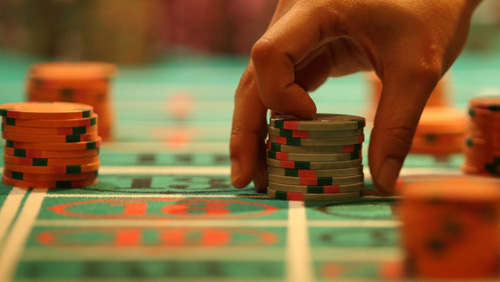Japan’s ruling Liberal Democratic Party (LDP) and its junior coalition partner Komeito are set to present the much-awaited Integrated Resorts bill before the Japanese Diet on April 27, according to a Reuters report.
 Chikako Ikeda, an official at the LDP’s political affairs committee, announced that the bill is ready to be tabled on Wednesday, after a month of ironing out the nitty-gritty of the IR bill provisions. Much of the discussions between LDP and Komeito centered on new rules that will govern Japan’s first casinos, including the push for allowing six Japanese cities to host the integrated resorts.
Chikako Ikeda, an official at the LDP’s political affairs committee, announced that the bill is ready to be tabled on Wednesday, after a month of ironing out the nitty-gritty of the IR bill provisions. Much of the discussions between LDP and Komeito centered on new rules that will govern Japan’s first casinos, including the push for allowing six Japanese cities to host the integrated resorts.
Initially, both parties locked horns on the number of licenses that Japan will give out. The LDP came in very aggressively with a proposal for either five or six licenses, while Komeito has proposed limiting casino licenses to two or three locations.
They also deliberated on the issue of Japanese casino visitation. Unlike the LDP, the junior coalition partner wanted to limit residents’ casino visits to no more than three times a week and 10 times per month.
In the end, Ikeda said that both parties reached a compromise on many provisions, allowing the bill to finally move forward.
Citing the latest draft proposal, Reuters reported that IR bill will mandate the government to set an upper limit on casino floor space. The coalition party also agreed on 30 percent tax on casino revenue, an entry fee of JPY6,000 (US$55.92) for residents of Japan and an initial cap of three casino sites nationwide.
In its note on Monday, international brokerage Morgan Stanley described Japan’s casino framework as better than feared.
A Morgan Stanley analyst pointed out that the proposed 30 percent tax rate will support return on invested capital of 14 to 20 percent. In terms of the proposed entry-fee for locals, the international brokerage noted that JPY6, 000 is roughly half of what Singaporeans pay.
The U.S. financial institution also revised the predicted value of Japan’s casino market to $15 billion per year by 2025 from its earlier valuation of $7 billion to $20 billion.
However, casino operators may still need to hold their breath once the casino bill is filed. First, there’s uncertainty whether the bill will pass during the current session of Parliament given the fact that the Japanese lawmakers are already going through a mountain of bills. There’s also the growing unpopularity of Prime Minister Shinzo Abe, the leading proponent of casinos in Japan, who has been dragged into a suspected cronyism scandal. And more importantly, the casino bill is still unpopular with the Japanese public to date.